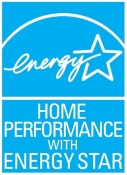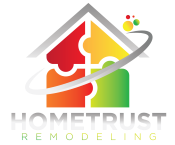1989 Split-Foyer - Hanover, MD 21076
The reason this BGE Customer has Got the AuditThe main reason for the energy audit of the Hanover house was that the customer wanted to understand why their split-foyer home had hot and cold spots throughout. General Profile - 1989 Hanover Split-Foyer Neighborhood: Hanover, MD Style: Single-Family Detached, Split-Foyer Year Built: 1981-1990 Foundation Types: Conditioned Basement Typical Homeowner Complaints: Hot and cold spots throughout the split-foyer home Current Insulation Condition: Attic: 8 inches, moderately insulated Rim Joist: 2 inches, moderately insulated Cantilevers: Front (6 inches), Rear (8 inches), moderately insulated Common Insulation Challenges: Insufficient attic R-values, missing air sealing at various points HVAC Ducts: Estimated leakage, need for proper sealing Unique Features: Air Source Heat Pump (8.20 HSPF, 16 SEER), 50-Gallon Electric Water Heater | 1989 Split-Foyer - Hanover, MD 21076
The reason this BGE Customer has Got the AuditThe main reason for the energy audit of the Hanover house was that the customer wanted to understand why their split-foyer home had hot and cold spots throughout. General Profile - 1989 Hanover Split-Foyer Neighborhood: Hanover, MD Style: Single-Family Detached, Split-Foyer Year Built: 1981-1990 Foundation Types: Conditioned Basement Typical Homeowner Complaints: Hot and cold spots throughout the split-foyer home Current Insulation Condition: Attic: 8 inches, moderately insulated Rim Joist: 2 inches, moderately insulated Cantilevers: Front (6 inches), Rear (8 inches), moderately insulated Common Insulation Challenges: Insufficient attic R-values, missing air sealing at various points HVAC Ducts: Estimated leakage, need for proper sealing Unique Features: Air Source Heat Pump (8.20 HSPF, 16 SEER), 50-Gallon Electric Water Heater |
Homeowner Takeaways from this Hanover BGE Energy Audit
Long-Term Problems if Left Unchecked
| Recommendations to seal and insulate the attic hatch. Insufficient attic R-values, missing air sealing at various points | Recommendations to seal and insulate the attic hatch. Insufficient attic R-values, missing air sealing at various points |
Air Source Heat Pump (8.20 HSPF, 16 SEER) Current leakage: 2130 CFM50 |






